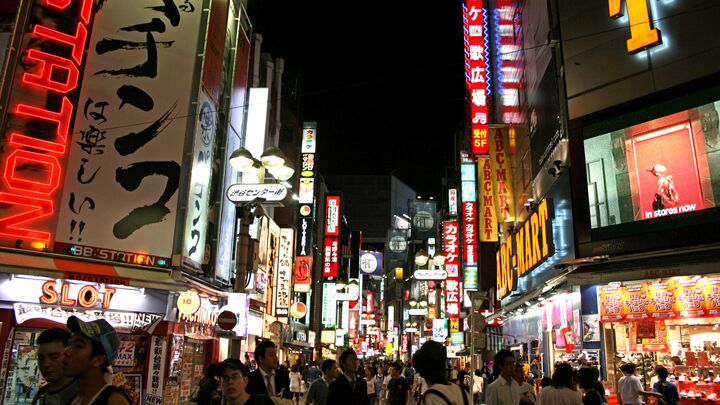
Shinzo Abe’s Japanese Economic Renaissance
British-based economics analyst Dr. Peter Warburton believes that under Prime Minister Shinzo Abe’s aggressive political leadership, Japan is finally set to emerge from its economic stupor.
Director of London-based consulting firm Economic Perspectives Ltd., Warburton senses a change in the mood of the population with the government now under Abe’s direction. He observes that the Japanese “believe a kind renaissance is going to happen” (Lignet, June 13).
One of the problems that has developed in the wake of Japan’s economy becoming moribund in the 1990s following decades of spectacular growth is the accumulation of a massive public debt.
Predicting a growth rate of 2 percent for the current year, Dr. Warburton posits that 2014 may “have Japan on a growth path that allows it to begin to address its huge public debt” (ibid).
A principal factor that weighs heavily on Japanese economic, fiscal and foreign policy at the moment is the state of the Chinese economy. “Abe’s economic stimulus policies are having a significant effect on the Chinese economy. According to Warburton, the declining value of the Japanese yen is ‘plumping up’ China’s currency. Warburton said this is not entirely a bad thing, since it is restraining Chinese inflation” (ibid).
In an April report, Stratfor stated, “The new governor of the Bank of Japan won almost unanimous consent for his proposal to launch massive monetary stimulus in Japan. The anticipation of the new policy has already contributed to a sharp drop in the yen’s value relative to export competitors. This move will not revive the whole economy, but the combination of political consensus and the government’s willingness to embrace new ideas is a notable development” (April 8; emphasis added).
This is what has become a primary indicator of change in Japan—consensus. As Japanese governments have come and gone in rapid succession over recent years, it has been difficult for the nation to reach a consensus on the direction of economic policy. We now appear to have a collective mind change taking place not only within government circles in Japan, but also in the mind of the public.
If Abe is able to manage this significant psychological advantage—a phenomenon that has not been experienced for decades in Japan—to his political advantage such that he wins a majority in the upper house of the Japanese Diet during elections this July, he could well be on course to lead Japan back to its prior status of an economic powerhouse, this time in direct competition with China.
That said, any revival of the Japanese economy must also be seen in the light of Abe seeking to propel Japan forward on a trajectory of military development. A significant plank in his political platform is the revision of the Japanese Constitution to enable it to legally embrace such a move.
In a December 2012 report, Stratfor observed that Japan sported a “world-class military” force. The report continued, “Over the years, postwar Japan has acquired formidable conventional capabilities despite Article 9 of the country’s U.S.-drafted constitution, which prohibits belligerency and armed forces.
“While remaining content with its limited military role for more than six decades, Japan’s current regional security and political concerns are accelerating the impetus for normalization—the political process of eliminating restrictions on the military” (Dec. 17, 2012).
Shinzo Abe’s election in December as prime minister of Japan has been followed by an increasingly bellicose stance by the Japanese government on changing its defensive posture to embrace legitimate entry into zones of combat as a recognized military power unfettered by restraints built into its constitution since World War ii.
These recent developments in Japan have been anticipated by the Trumpet for the past two decades. A check of our archive will prove that.
The reason we have written with such confidence of a Japanese “renaissance” is because of the prophecies documented in your Bible. Those prophecies reveal Japan will be a powerhouse economy, ultimately embracing Southeast Asia in something akin to the Greater East Asia Co-Prosperity Sphere, which was its initial goal in World War ii.
By checking the ethnicity of the nations named in the future Far East alliance in the prophecy of Ezekiel 38:6, we see Japan and its Southeast Asian relatives combined in alliance with China and Russia (verses 1-3).
At present, Russo-Chinese relations are quite warm, to the point of holding periodic joint military exercises together. It is not yet apparent, given certain tensions between Japan and China over territorial questions, just how the two will form a future alliance to complete the prophesied Far East triumvirate. But, given that the prophecy cannot be broken (John 10:35; 2 Peter 1:19), it is something we should be watching for.
In the meantime, watch for the outcome of the Japanese elections in July. If the majority falls to Abe’s government at that time, we may well see Japan rapidly propelled forward into its future prophesied status as a global military power, yet once again to be reckoned with by the West. Read our booklet Russia and China in Prophecy for more insight into these developments.
